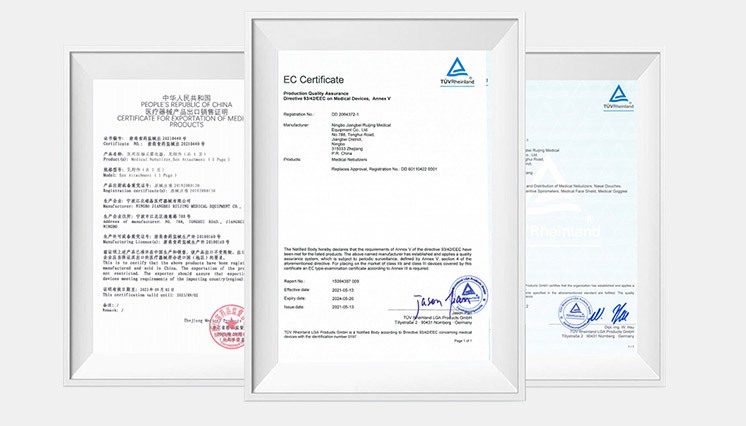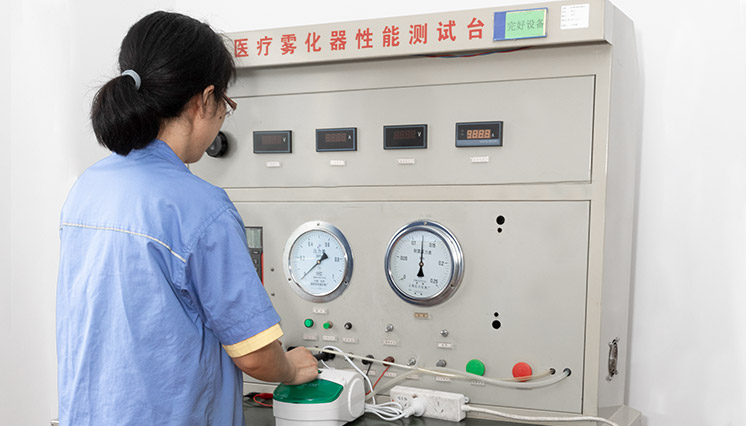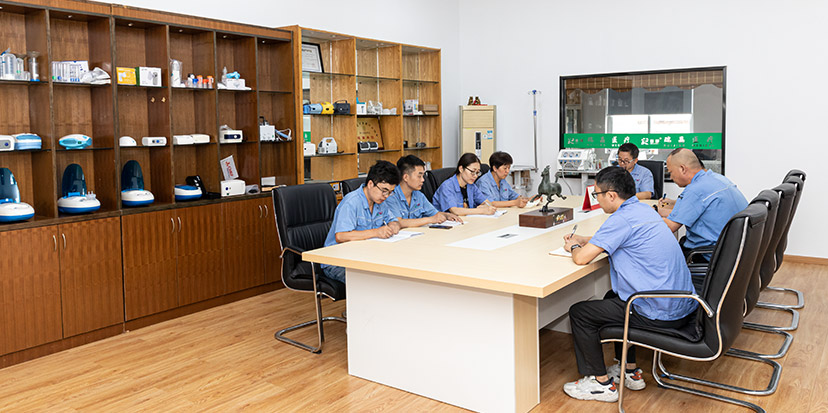Product Features:
1. Heavy duty powerful air compressor--Dependable performance, suitable for hospital non-stop use.
2. High pressure and airflow, 4 bar pressure ensure particle size MMAD distribution for efficient treatment, 14lpm airflow ensures large aerosol output.
3. Medical PE high density filter--Good filter material ensure clean filtered air for inhalation.
4. Adjustable Nebulization Rate--Valve rotation adjusts high aerosol output for adults and low aerosol volume for children.
5. Compartments for accessories and power cord storage-- The front big compartment is to keep the masks and tubes inside for convenient use, backside compartment for cable.
|
Model No. |
RJ-202 |
|
Weight |
2.0KGS |
|
Motor Pump |
oil-free ball-bearing piston motor (with thermal fuse protector) |
|
Dimension |
315*220*120mm |
|
Power Supply |
AC 220V + 10%; 50/60Hz |
|
Power Consumption |
< 65W; |
|
Motor Work Life |
> 5,000 hours |
|
Compressor Pressure |
0.38-0.4 Mpa;3.8-4bar |
|
Compressor Operation Flow |
> 15LPM |
|
Noise Level |
< 58dB |
|
Particle Size |
< 5.0 µm ( 75%) |
|
Average Nebulizing Rate |
0.3-0.45ml /min |
|
Medication |
2-10ml |
|
Residue |
< 0.5ml |

Our RJ-202 Hospital use heavy-duty respiratory care air compressor nebulizer product through the medical device manufacturing management standard sterile medical device implementation rules (GMP) audit. In line with international quality standards, has obtained S013485, CE certification, obtained a number of patent certificates, with product appearance patent and utility patent

Ruijing with advanced quality testing equipment and experienced quality inspection workers, strictly control the production link; Have a perfect quality management system, timely traceability of product ERP production dynamics, so that the RJ-202 Hospital use heavy-duty respiratory care air compressor nebulizer product quality can be controlled







1. The role and working principle of Nasal DoucheAs a professional nasal care tool, the nasal irrigator can effectively remove allergens, germs, dust and excess mucus in the nasal cavity through gentle saline flushing. It can remove pathogenic substances in the nasal cavity throu...
1. Preparation before operation and equipment inspectionInspection of pedal components: confirm that the pedal air pump connection pipe of the foot-operated compressor nebulizer is not damaged, the interface is not leaking, and the air pressure output is stable when stepping on i...
Incentive Spirometry (IS) is a device that guides patients to perform deep breathing training through visual feedback. It is mainly used to prevent and treat postoperative pulmonary complications such as atelectasis and pneumonia. Its mechanism of action and product advantages co...
I am very happy to participate in the HOSPITALAR 2025 BRASIL exhibition. At the exhibition, we introduced and demonstrated the uses of some products so that more people can understand them and know them. I hope our products can help more people.
1. Finer atomized particlesThe median particle size of the mist particles produced by the mesh nebulizer through the micron-level screen is concentrated in 1-5μm, and the proportion of particles with a diameter of ≤5μm can reach 50%-90%. Such fine particles can penetrate into the...
For exclusive deals and latest offers, sign up by entering your email address below.
What is Hospital use heavy-duty respiratory care air compressor nebulizer?